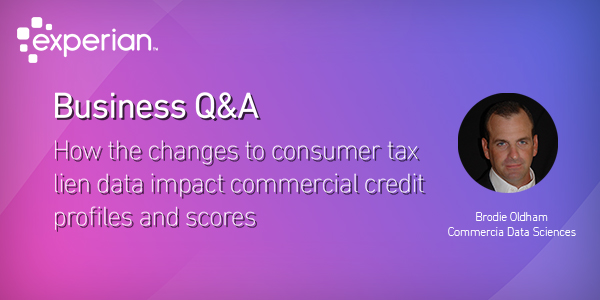Business Credit Reports

This Experian article goes in depth on automating credit decisions for better efficiency.

All business customers are not created equal. Even companies that look solid at first glance can hide festering problems that eventually can impact your bottom line. Successful credit management requires you to carefully evaluate the financial health of every business that asks for credit terms. Here are 5 questions you should be able to answer before extending business credit: 1. Is the business what it claims to be? Sometimes, companies needing credit will provide inaccurate information to win approval. Before opening an account, you need to confirm the applicant‘s bona fides, including its location, size, number of employees, annual revenue, years of operation and similar financial indicators. 2. What is its payment history? Although past performance does not guarantee future results, a company’s payment history is often a strong indicator of how it is likely to behave in the future. Pulling a business' credit report can easily provide you a snapshot of a company's payment history as well as other risk measures. 3. Are there hidden factors that could affect its ability to pay? Are there pending judgments, lawsuits, bankruptcies, regulatory citations or other “red flags” that could make it difficult for the applicant to meet its obligations in the future? This is another area where a business' credit report will be a key factor in helping you uncover a potentially risky business. 4. How much credit should you extend? All credit contains an element of risk, but you can mitigate that risk by limiting the amount of credit you extend based on factors such as the customer’s sales volume, debt to-asset ratio and similar aspects. 5. Under what terms should you extend credit to this customer? You can mitigate risk further by carefully calibrating the combination of interest rates, minimum payments and other contract terms based on each customer’s individual financial metrics.

Last year the three primary credit bureaus; Experian, Equifax, and TransUnion announced and implemented enhanced standards for the collection and timely updating of public record data reported on consumer credit reports. This was done in accordance with the National Consumer Assistance Plan requirements. Part of this work involved the partial removal of tax lien data from our consumer credit reporting database. With the complete removal of remaining tax lien data scheduled for April 16th, some of our clients have asked how these changes might impact commercial credit reports. In this business Q&A I ask Brodie Oldham for some clarification. What is NCAP and how did it impact Experian's core credit data? Brodie Oldham: Gary the NCAP is the National Consumer Assistance Plan and it was put in place by the three U.S. credit reporting agencies Experian, Equifax and TransUnion in response to the U.S. attorney general's request for clarity and transparency in consumer credit data. The data that was the main focus was data that did not meet completeness or freshness requirements of data furnishers to the credit reporting agencies. The data that had the most impact from the study was public record data; judgments and liens for consumers that weren't updated or didn't have all of the personal identifying data necessary to meet the guidelines. This data is planned to be removed in April of 2018. Was there impact to Experian's commercial credit data? Brodie Oldham: No Gary not an impact to our commercial credit data collected at Experian. We continue to collect that public record information for use in evaluating small businesses through our commercial credit scores. The impact with the public record information is really when we're evaluating a business owner guarantor using the consumer credit information where public record data has been removed. What was the impact to commercial blended scores? Brodie Oldham: The impact is when we're evaluating small business owners or guarantors using their consumer credit information. When we look at segments where commercial-only data is used there is no impact there because we're not changing the way that we collect public record information on the commercial side of our business?With the blended scores you would expect that if we remove some of the consumer derogatory information in public records that the score would go up. And we saw a mean lift to about .03 percent, so very small. In the performance of the blended generic credit scores in their evaluation and capture of those delinquent accounts. We saw a very insignificant lift, so the scores are very stable and working well even with the change that we're having with public records. Additional Resources: Whitepaper - NCAP Impact on BIS Scores (June-2017) National Consumer Assistance Plan Is Extended as Experian, Equifax and TransUnion Settle with State Attorneys General

Here at Experian, we work with many clients whose customers and suppliers operate all over the world, and one of the biggest challenges for many is being able to detect financial duress by monitoring companies whose headquarters are outside of the United States. Early identification of negative activity helps your company prevent lost revenue and service interruptions, it also helps minimize reputational damage caused by doing business with a company in violation of U.S. laws. These early notifications can also help mitigate the effects of changing economic conditions while growing new business opportunities with lower risk. Today we are thrilled to announce that Experian’s commercial alerts now enable you to monitor more businesses in more countries with greater precision. Experian now offers 25 alerts on 8 countries in Western Europe, with 8 more countries coming soon! These international alerts offer the ability to stay up to date on changes such as: change in ownership, business name and address, as well as changes in credit limit, balance sheet information, and company status and much more. Proactive notifications empower you to act quickly and mitigate risk, collect on overdue amounts and retain your best customers. Want to know more? Contact us today so we can start helping you reduce the risk in your growing business. International Reports & Resources

According to a recent United States Department of Commerce Economic Statistics and Administration report, world trade volume for goods and services is expected to increase 5.3 percent in 2015, up from 3 percent in 2013. Working with companies overseas can have a lucrative impact on your business, however, the opportunity does not come without risk. There are many potential pitfalls to expanding overseas that must be addressed in order to mitigate risk and improve profitability. Three of the major information-based hurdles that should be considered are: 1 - Availability - International data often is unavailable to credit professionals or it takes them too long to acquire. 2 - Freshness - International data is often out-of-date, increasing the chance of making inaccurate risk assessments. 3 - Consistency - Credit professionals can’t use the same analytical models across multiple geographies due to data differences. Experian makes it easy for our customers to expand into new territories through our enhanced international capabilities. We provide comprehensive insight into your international customers and vendors — both prospects and existing — that is accurate, up-to-date, easily accessible and highly actionable. This data helps you assess risk, reduce exposure to late payments and defaults, and be more competitive overall. In the below video Experian product manager, Greg Carmean discusses some of the challenges in international business engagements. Experian’s International Developed Profiles help Rubicon Project safely expand into untapped markets Rubicon Project is a technology company that automates the buying and selling of digital advertising. Their trading platform reaches a global audience of 200 million U.S. and 646 million global monthly visitors. Before they began using Experian, the company was hesitant to grant credit internationally due to the limitations of its previous sources. Rubicon Project is focused on rapidly expanding into new territories while providing world-class service and minimizing risk. In some geographic regions, online ad trading is a new concept that is generating considerable excitement, but this poses the challenge of being able to adequately navigate risk in uncharted waters. "With Experian's Business Information Services, we have access to comprehensive information that helps us uncover new growth opportunities," said Lorraine Moses Rubicon Project’s director of credit and collections. Most recently, Rubicon Project has been challenged with monitoring customers located in high-risk countries affected by recent economic challenges in the Eurozone and Latin America. “Experian simply has updated information on many of the customers of concern,” Moses, continued. “We have been able to grant credit to a large number of international customers that would have been declined because we were unable to determine credit worthiness due to limited information.”
